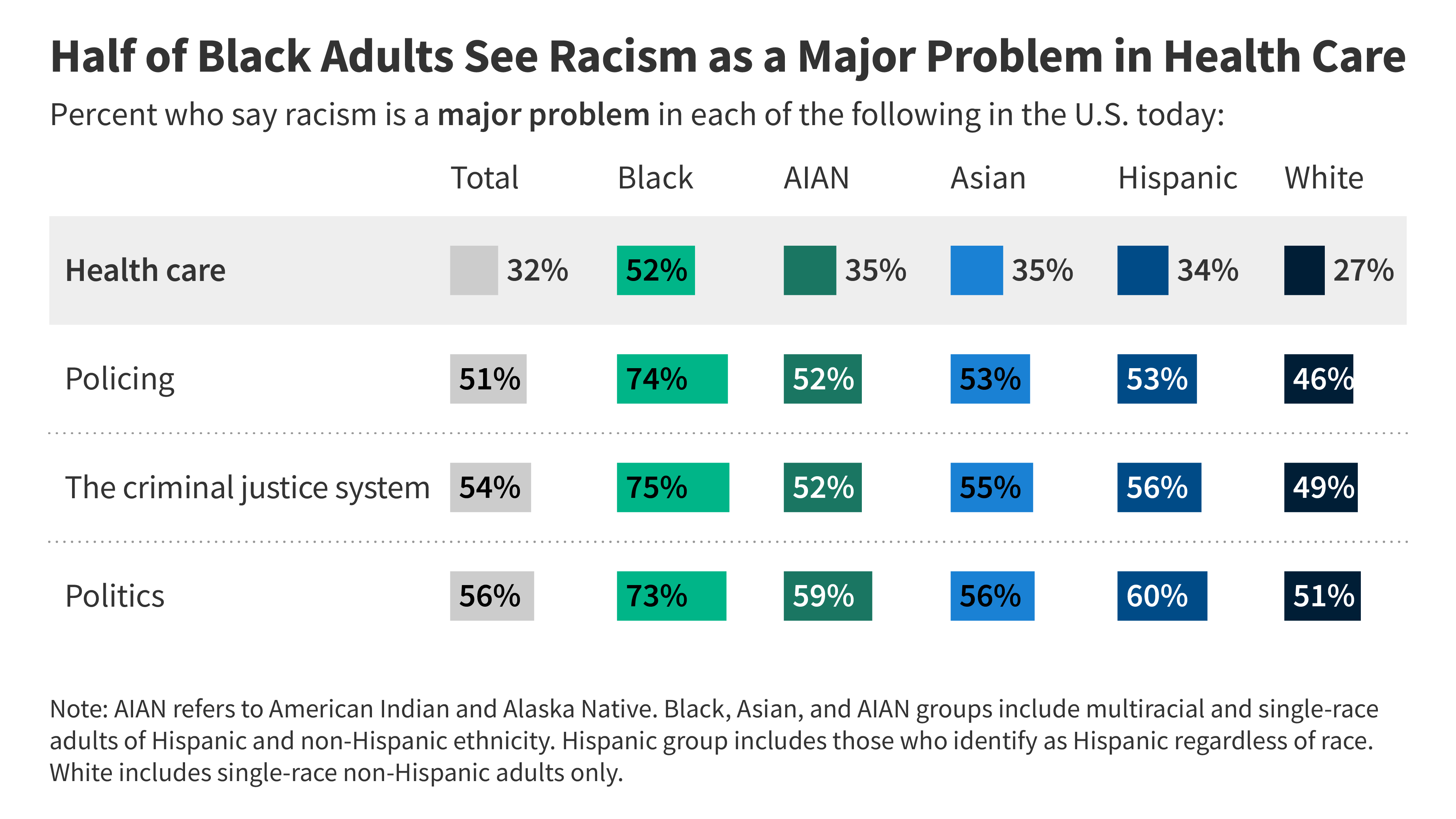How 18th Century Racism Affects Your Healthcare | Psychology Today
When we fall prey to perfectionism, we think we’re honorably aspiring to be our very best, but often we’re really just setting ourselves up for failure, as perfection is impossible and its pursuit inevitably backfires.
Racial Bias in Healthcare
When I lived in Philadelphia, I had an allergist who would often give me lung function tests to assess my asthma-related difficulties. The test always registered as normal, even when I was clearly unwell, and in fact, sometimes it came out above average, which she said was odd for an asthmatic. I have always hated having to prove I have a chronic condition, and I feel anxious whenever I must see a doctor for a flare-up, worried I'll be told it’s not that bad or I'm just fine. I have put off medical care sometimes just to avoid dubious looks from providers.

A lung function test, also called spirometry, measures how well a person’s lungs are working. By having the patient breathe into a device that records the amount and speed of air they inhale and exhale, doctors can assess conditions such as asthma, chronic obstructive pulmonary disease (COPD), and other breathing issues.
Historical Impact on Healthcare Disparities
For decades, lung health tests have used different "normal" standards based on race, leading to different treatment for Black patients. These tests classify lung function differently for Black and White people, often causing Black patients to be underdiagnosed or undertreated.

A groundbreaking study by Diao and colleagues, published this year in The New England Journal of Medicine, showed that gold standard race-adjusted equations in lung-function tests underestimate the severity of Black patients’ lung problems and overestimate the severity of White patient lung problems, reinforcing inequalities in healthcare.
For Black people, the predicted normal values are adjusted to be about 10–15% lower than for White people, which can cause healthcare providers to overlook signs of lung diseases like asthma, cystic fibrosis, or COPD for Black people.
Roots of Racial Bias in Healthcare
This race-based system was based on false notions that Black people had naturally deficient lungs. Thomas Jefferson, in his 1785 Notes on the State of Virginia, described what he believed to be a difference in the lungs of enslaved people compared to White colonists, stating the "difference of structure in the pulmonary apparatus" was a justification for slavery.

However, there is no legitimate physiological or genetic rationale for why there would be innate racial differences in lung function, so this idea is scientifically unjustified. Rather it is a harmful and false medical stereotype that has led to incorrect clinical assessments that impact millions of people, including children.
Impact on Mental Health and Well-being
Differences in income, access to care, and housing have all been implicated as reasons for this health disparity, but the impact of biased medical tests on disparities may be a larger part of the problem than anyone has realized.
Struggling to breathe can be a cause of mental health problems, like depression and anxiety. Adolescents with asthma have a significantly increased risk of developing panic disorder, and studies have found associations between asthma and suicidal behaviors.
Call for Change
Improving biased healthcare technology is not just a technical fix but an urgent step toward justice and ending fatal medical biases. There is a moral responsibility to eliminate unexamined racist practices to ensure fair, equal care for everyone.
Experts now call for “race-neutral” tests to help end these injustices, highlighting the need to change a system rooted in outdated, biased ideas. By justifying biased standards as medically necessary, the system has perpetuated racist practices rooted in false beliefs of racial differences in lung function that date back to 18th-century assumptions.
Diao’s study underscores the importance of revising medical practices and technologies that have disadvantaged Black patients for decades.
References:
- Diao, J. A., et al. (2024). Implications of Race Adjustment in Lung-Function Equations. The New England Journal of Medicine, 390(22), 2083–2097.
- Non, A. L., Akong, K., & Conrad, D. J. (2023). Is it time to end race and ethnicity adjustment for pediatric pulmonary function tests? Pediatric Pulmonology, 1–6.
- Barker, E., et al. (2015). The relationship between asthma and suicidal behaviours: A systematic literature review. European Respiratory Journal, 46(1), 96-106.
- Sudat, S. E. K., et al. (2023). Racial disparities in pulse oximeter device inaccuracy and estimated clinical impact on COVID-19 treatment course. American Journal of Epidemiology, 192(5), 703–713.




















